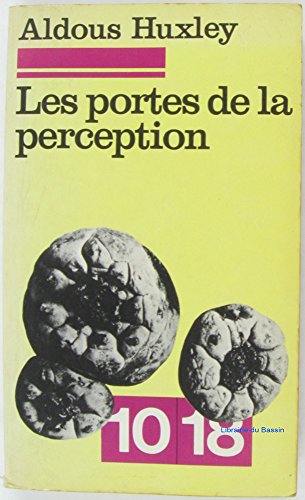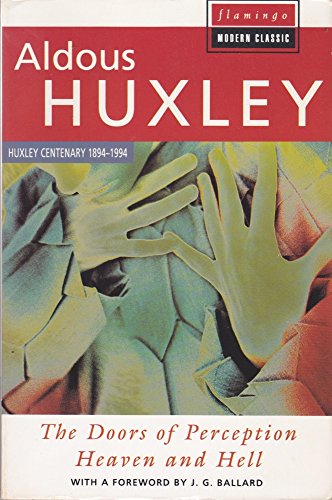The
celebration of the present moment is a cliché (which, perhaps,
is the expression of a truth) of the spiritual literature. In the
seventeeth century, Angelus Silesius shaped it in a beautiful distich
:
One must be limpid
and live in the moment
So that in oneself God sees Himself and
softly reposes.
(Cherubinic Wanderer, I, 136)
Like
Huxley in Perennial Philosophy
(chapter Time and Eternity),
Eckhart Tolle quotes Rumi : ''the Sufi
is the son of time present'' (The
Power of Now).
The
Transcendentalists, and close to them Whitman, also attempted to
increase their lives increasing their perception of the ''everlasting
Now'' :
Thoreau
: Men esteem truth remote, in the
outskirts of the system, behind the farthest star, before Adam and
after the last man. In eternity there is indeed something true and
sublime. But all these times and places and occasions are now and
here. God himself culminates in the present moment, and will never be
more divine in the lapse of all the ages (Walden,
chapter 2).
Walt
Whitman : I have heard what the talkers were
talking,
The talk
of the beginning and the end,
But I do
not talk of the beginning or the end.
There was never any more inception than there is now,
Nor any more youth or age than there is
now,
And will never be any more
perfection than there is now,
Nor any
more heaven or hell than there is now.
(Song
of Myself, 3).
But
maybe nobody has never more powerfully formulated the ''power of
now'' than Emerson, -in all his works, and for instance in Literary
Ethics :
The youth, intoxicated
with his admiration of a hero, fails to see, that it is only a
projection of his own soul, which he admires. In solitude, in a
remote village, the ardent youth loiters and mourns. With inflamed
eye, in this sleeping wilderness, he has read the story of the
Emperor Charles the Fifth, until his fancy has brought home to the
surrounding woods, the faint roar of cannonades in the Milanese, and
marches in Germany. He is curious concerning that man's day. What
filled it? the crowded orders, the stern decisions, the foreign
despatches, the Castilian etiquette? The soul answers — Behold his
day here! In the sighing of these woods, in the quiet of these gray
fields, in the cool breeze that sings out of these northern
mountains; in the workmen, the boys, the maidens, you meet, — in
the hopes of the morning, the ennui of noon, and sauntering of the
afternoon; in the disquieting comparisons; in the regrets at want of
vigor; in the great idea, and the puny execution; — behold Charles
the Fifth's day; another, yet the same; behold Chatham's, Hampden's,
Bayard's, Alfred's, Scipio's, Pericles's day, — day of all that are
born of women. The difference of circumstance is merely costume. I am
tasting the self-same life, — its sweetness, its greatness, its
pain, which I so admire in other men. Do not foolishly ask of the
inscrutable, obliterated past, what it cannot tell, — the details
of that nature, of that day, called Byron, or Burke; — but ask it
of the enveloping Now; the more quaintly you inspect its evanescent
beauties, its wonderful details, its spiritual causes, its astounding
whole, — so much the more you master the biography of this hero,
and that, and every hero. Be lord of a day, through wisdom and
justice, and you can put up your history books.
So many people have
celebrated the present moment -but who has been so coherent and
insightful to celebrate also the here -in the proper sense of
this word : the material nature as it is wherever you are. We read a
lot about the now, but most of the time most of us think :
''Now is good, but elsewhere is best''. Of these two facets of
reality, the here seems too often overlooked or forgotten. In
Emerson's essays, the two facets shine with equal clarity :
Write it on heart that
every day is the best day in the year (Works and Days).
The first step of
worthiness will be to disabuse us of our superstitious associations
with places and times, with number and size. Why should these words,
Athenian, Roman, Asia, and England, so tingle in the ear? Where the
heart is, there the muses, there the gods sojourn, and not in any
geography of fame. Massachusetts, Connecticut River, and Boston Bay,
you think paltry places, and the ear loves names of foreign and
classic topography. But here we are; and, if we will tarry a little,
we may come to learn that here is best (Heroism).
''...that every day is
the best day'' : I have had immediately this sentence in mind when I
read the story of Banzan in Eckhart Tolle's Power of Now :
Before he became a great Zen master, he spent many years in pursuit
of enlightenment, but it eluded him. Then, one day, as he was walking
in the marketplace, he overheard a conversation between a butcher and
his customer. ''Give me the best piece of meat you have,'' said the
customer. And the butcher replied, ''Every piece of meat I have is
the best. There is no piece of meat here that is not the best.'' Upon
hearing this, Banzan became enlightened.
It
seems to me that the intuition of the Now and the intuition of the
Here grow on the same root : the intuition of the New. And I think
this intuition of the new is the central feature of Emerson's
thought. One might call it neology
-a concept used by one of the Transcendentalists, Frederic Hedge (cf
Barbara Packer, The Transcendentalists,
Georgia, 2007, p. 166). As soon as the first paragraph of his first
book, Nature, Emerson
states it loud and clear : Our age is retrospective. It
builds the sepulchres of the fathers. It writes biographies,
histories, and criticism. The foregoing generations beheld God and
nature face to face; we, through their eyes. Why should not we also
enjoy an original relation to the universe ? Why should not we have a
poetry and philosophy of insight and not of tradition, and a religion
by revelation to us, and not the history of theirs? Embosomed for a
season in nature, whose floods of life stream around and through us,
and invite us by the powers they supply, to action proportioned to
nature, why should we grope among the dry bones of the past, or put
the living generation into masquerade out of its faded wardrobe ? The
sun shines to-day also. There is more wool and flax in the fields.
There are new lands, new men, new thoughts. Let us demand our own
works and laws and worship. (And
I cannot quote here all the countless extracts I have in store from
his journals, sermons, letters, lectures and essays about ''the
New'')
 |
| A French translation of Nature (Editions Allia, 2014) |
It
is only in the present moment one can perceive nature's newness. But
this newness is a property of matter, and nature is everywhere
matter, so you can perceive this newness everywhere. Travelling is
useless, it is a fool's paradise,
as Emerson put it in Self-Reliance.
Because matter renews itself incessantly, matter is ever other, and
in this sense, one may say : elsewhere is here. Because the world is
everywhere new at every moment, wherever you are, you are always
everywhere elsewhere. Every moment is a new world
: this sentence appears at least two times in Emerson's works (sermon
n°158 and journal, Feb 22 1834), and one may add : every place at
every moment is a new world. It is in this way I read this paragraph
of the last pages of Thoreau's Walking :
Nature is a personality so vast and universal that we have
never seen one of her features. The walker in the familiar fields
which stretch around my native town sometimes finds himself in
another land than is described in their owners' deeds, as it were in
some far-away field on the confines of the actual Concord, where her
jurisdiction ceases, and the idea which the word Concord suggests
ceases to be suggested. These farms which I have myself surveyed,
these bounds which I have set up appear dimly still as through a
mist; but they have no chemistry to fix them; they fade from the
surface of the glass; and the picture which the painter painted
stands out dimly from beneath. The world with which we are commonly
acquainted leaves no trace, and it will have no anniversary.
Eveywhere
at every moment our earth offers the enchantment of the New. The
problems are in the conditions of its perception (everyday work and
concerns, busy crowds, urban and noisy environment...). Travelling
may be a solution, but only -besides the stimulation of a new
setting, of a new landscape- to get better conditions of perception,
no more. Whitman says : There was never any more inception than
there is now. And he could say : There was never any more
inception and freshness and newness elsewhere than there is here.













